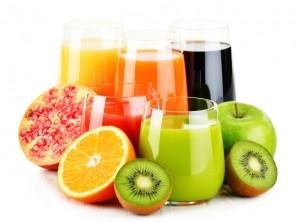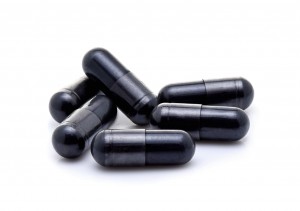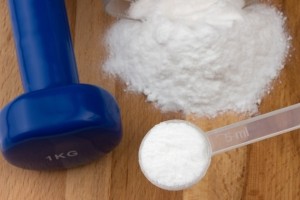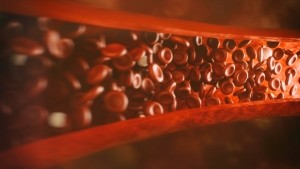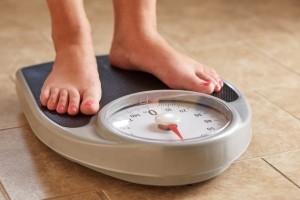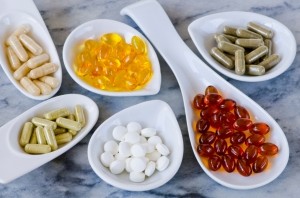Top 10 myths of health and nutrition (and the facts behind them)
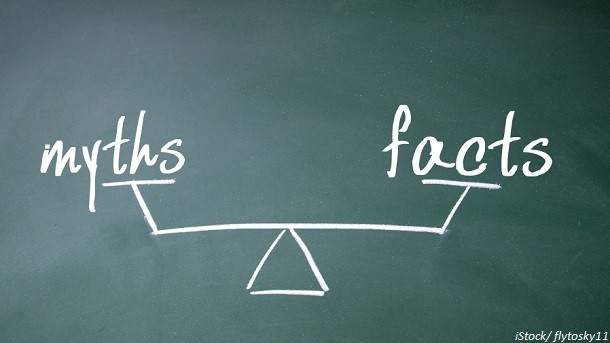
1. We should detox
‘Detox’ is a popular buzzword in the dieting world - The idea being that we need to clear anything ‘toxic’ from our body in order to stay healthy. In particular, we might
be tempted to detox after over-indulging a little, for example at Christmas. Detox diets can involve: Fasting, consuming only fruits and vegetables, cutting out wheat and dairy, consuming a limited range of foods, avoiding caffeine and alcohol. But the concept of detox diets is unscientific.
The UK’s National Health Service has advised that when you starve your body of calories your body will ultimately start to build up chemicals called ketones. These chemicals can result in nausea, dehydration, weakness, light-headedness and irritability. Further, a prolonged lack of protein causes your body to break down its own muscles and can compromise your immune system.
Laura Clark, registered dietitian and sports nutritionist, adds: “If you own a liver and kidney you are detoxing 24/7. Check if you have these and if you do, don’t panic. To help them along keep well hydrated and don’t drink alcohol in excess.
"I'm aware that people buy special detox tea's or drink lots of lemon water. There are also detoxing smoothies. However, none of these products will actually detox the body as it is very capable of ridding itself of unwanted products constantly. These products may help hydration and encourage you generally to smarten up your diet by eating more fruit and vegetables for example which in turn may make you feel better but they are not doing anything more magical than that."
2. A food intolerance test will tell you if you have an intolerance
Food intolerance tests offered in health food shops and by a range of alternative practitioners, and self-professed wellness gurus are based on measuring IgG antibodies, and range in price from €80 to €350. Pharmacists also sold these tests for many years, but a recent ruling by their professional body (the Pharmaceutical Society of Ireland) and the HPRA (Health Products regulatory authority) have now placed an outright ban on pharmacists selling such tests to any of their patients or any member of the public.
Niamh O'Connor, CORU-registered consultant dietitian & member of the Irish Nutrition & Dietetic Institute, says these tests are not scientific, not accurate, nor evidence-based, and they certainly cannot detect any kind of food intolerance.
“Only a qualified medical doctor should perform medical investigations and make a diagnosis.
“Food intolerance tests are a waste of time, energy and a waste of hard-earned money!
“As a state registered health professional I am legally bound to only provide evidence-based information to my patients, so all dietitians are prevented from performing so-called food intolerance tests, and could be struck off the professional register for breaching code of ethics.
“Anyone who recommends food sensitivity / intolerance testing is declaring that they lack an understanding of: Basic immunology, How individual foods can impact health, and the negative impact that restrictive diets have on health & well being.”
3. BCAA’s are the best way to take amino acids
BCAA (Branched-Chain Amino Acids) drinks are said to play an important role in rehydration, protein synthesis and the production of energy, therefore helping reduce soreness and fatigue after a workout.
However some studies have shown BCAAs alone cannot support an increased rate of muscle protein synthesis.
Mark Gilbert, sports nutritionist, the European Specialist Sports Nutrition Alliance, points out that there’s a better way to consume useful amino acids.
“There’s something called ‘essential amino acids’ and the reason they’re essential is because if you don’t have them in your diet your body won’t have them. BCAA’s are only three of the eight or nine essential amino acids. Why not take something called an EAA supplement, an essential amino acid supplement offering all the amino acids required.”
4. Charcoal is a healthy antioxidant
Charcoal has become a trendy ingredient added into many foods and drinks on Instagram posts. It’s often said that activated charcoal is good for filtering out undigested toxins in the body but Dr Laura Wyness, a registered nutritionist, says charcoal can stop us absorbing vitamins and nutrients that our bodies need.
“Charcoal can bind nutrients and prevent the absorption of those into the body. In medicine it’s used to treat poison or drug overdoses but activated charcoal particles are too large to be absorbed into the bloodstream and it can actually reduce the absorption of some useful nutrients.”
5. Everyone should take a daily probiotic
The huge plethora of research into probiotics has revealed a mass of health benefits for our mental, gut, oral, brain and more. But unlike some messages put out in the media, this doesn’t mean everyone needs to take them every day - so long as they are eating the right diet.
Dr. Orla O’Sullivan, computational biologist, at Teagasc Food Research Centre, explains: “Probiotics are a great resource to restore microbial diversity after an insult (e.g. following a course of antibiotics or PPIs) or in alleviating the symptoms of some illnesses (e.g. IBS). However a healthy person with a balanced and diverse diet of whole foods should have no need for a probiotic.”
6. Protein powder is for youngsters in the gym
Protein powders are typically taken by gym-goers in their late teens, twenties and early thirties, but Max Gowland, founder of the supplements brand for the over 50’s Prime Fifty, says there’s another generation that should be upping their protein intake more than those whipper snappers.
“Additional supplemental protein in the diets of older adults seems to be very misunderstood…
“Age related loss of muscle (sarcopenia) can start in the forties and speeds up with age meaning that over 25% of one’s lean muscle can be lost before 65yrs!
“The real science has shown without doubt that older adults actually need more protein than their younger counterparts, largely as a result of a greater propensity to lose muscle mass rapidly when sedentary.
“Older adults possess a certain ‘anabolic resistance’ which, combined with the catabolic effect of being sedentary, can lead to significant loss of muscle mass, muscle function, strength and crucially balance too. Falling over is such a common accident in older adults and it must be said that the outcome from hip fracture surgery is, unfortunately, poor.
“Let’s also put to bed the internet stories where supplemental protein is believed to cause kidney problems and also even remove calcium from our bones….both these are myths according to studies. The health benefits of protein are huge and even more significant as we age.”
7. Creatine loading will cause faster saturation of muscles
A sports nutrition idea that’s been widely peddled is that creatine loading helps reach the ideal muscle saturation. But Tom Evans, head of new product development at Sci-MX, says this is not the case and it will leave you with an unhealthily light wallet.
“So It is very rare to see this on pack instructions nowadays, but the myth keeps circulating!
“I can only assume this was the best understanding of supplementing with creatine that was available in the past, either that or it was the work of a crafty marketing department! But as all responsible brands now describe – just take it daily. No loading required.
“Over the 5-7 day loading period proposed I’m not aware of any physical impacts. The only notable negative would be to your wallet. You would need to drink a lot more water but to be fair from memory the pack instructions would always make that clear.”
8. Alkaline diets are good for our blood PH
One of the many diet ideas trending these days is the ‘alkaline diet’. The idea behind this is that our blood PH can change according to our diet and it’s better to eat alkaline foods that stop it getting too acidic.
Registered Nutritionist Dr Laura Wyness explains that this, thankfully, is nonsense.
“If the food we ate effected our blood PH then we would be in a lot of trouble. Our blood has to remain between a PH of 7.35 and 7.45 and if it went below or above that we would probably die. Our bodies regular the PH all the time to ensure it remains constant.
“Alkaline foods are often fruit and veg so in that respect an alkaline diet is a healthy one but not because of its effect on our blood PH.”
9. Counting calories is a good diet technique
Of course, calorie intake is an important element of weight management but this is not necessarily a good way to stay healthy.
Ilan Samish, a scientist and protein researcher who founded the sweet protein startup company ‘Amai Protein’ says calorie counting can lead people to consume the wrong types of foods.
“Calorie counting is an easy measurable but it is often not the best nutritional guide. First, zero-calorie sweeteners can make you fat by changing the microbiome and affecting your overall metabolism - something that was well-proven in rodents and in early human experiments.
“Second, the way one consumes the calories is perhaps more important than the number of calories - there is a big difference between a slow release of the calories, as is the case with complex carbohydrates, in comparison to a sharp peak of calories, as is the case of processed sugar.
“The blood-sugar peak triggers an addictive response for more sugar as well as a metabolic 'down' response after the 'high' of the sugar ends. Last and not least, other adverse effects e.g. liver-toxicity or carcinogenicity should guide our eating habits.”
10. Taking vitamins is a waste of time
Many studies have concluded that taking vitamins can’t prevent chronic diseases but Dr Carrie Ruxton, dietitian, health writer and TV nutritionist, says supplements are for meeting vitamin and nutrient recommendations and they people should never expect them to act like wonder drugs.
“I’ve lost count of the number of studies reported in the media which state that vitamin and mineral supplements are a waste of money because they don’t prevent cancer/heart disease/diabetes/dementia etc.
"I am amazed that researchers expect to find such significant health benefits since we are talking about nutrients, not drugs. The purpose of vitamin and mineral supplements is to supplement the usual diet thus helping people to achieve nutrient recommendations – and that’s all we should expect.
"Of course, some people say that you should be able to get all the nutrients you need from a balanced diet. This is true but the reality is that millions of people in Europe don’t eat balanced diets and, therefore, tend to be low in key nutrients, like vitamin D, calcium, potassium, omega-3 fatty acids and folate. This is why it isn’t a bad idea to consider a daily supplement to top up the diet.”
